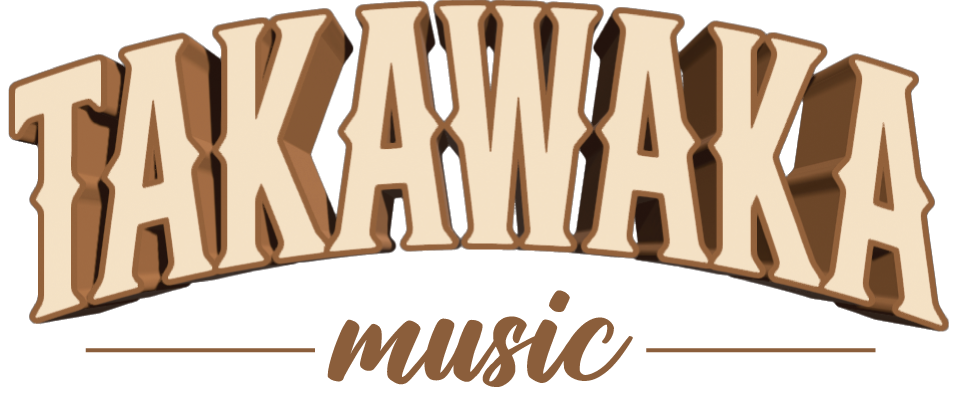Interview with John Phillips of RustJaw
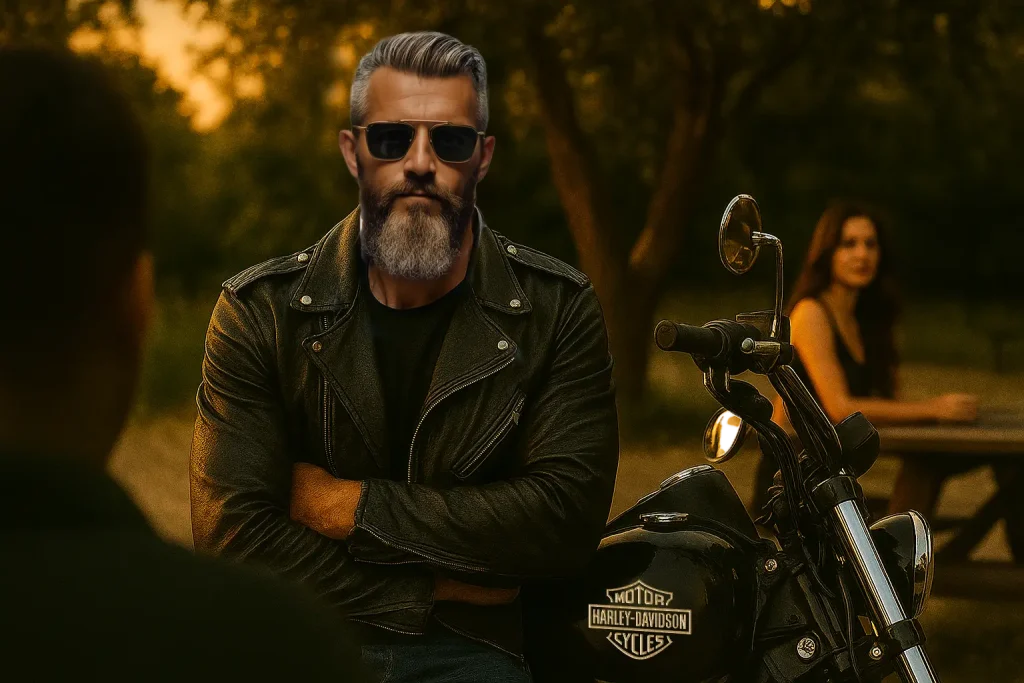
Takawaka Music sat down with John Phillips of RustJaw to talk new album, With Flying Birds, and what is new for the singer. Interviewer: Hey John. Great to see you as always. John: Great to see you. Interviewer: How’s things going? John: Good. Just came back from a ride down to Ontario. Interviewer: Yeah. And how was that. John: Great. Great Country. Interviewer:I’m sure. So, the Album. Sounds great. John: Thanks. It came out pretty well. Interviewer: Mark and Paul think so. Was just talking to them. John: Good. How the boys. Interviewer: Seem good. Mark was a little off. John: Off? Interviewer: Yeah and little nervous. John: Yeah doesn’t like interviews. Can’t say that I do either. Interviewer: No. Well I will try to keep it short. So I wanted to discuss AI for a moment. John: What about it Interviewer: Well some people are getting a little miffed about it being present and being so widely dispersed out on Spotify and Apple and other streaming places. What’s your take. John: Don’t have a take. People can listen to it or not. We just make music that we like. Period. If these “other people” have issues with it. I can’t do anything about it. Right Interviewer Right. I guess not. But do you think that AI music should exist at all. You’re AI for instance. Does this matter to you. John: Nope. Couldn’t care less. Look. The reason we started all of this is because we just didn’t like what was out there. We would rather listen to our own brand of music. Again. If people don’t like it, don’t listen to it. It is just that simple. Interviewer: But that would mean a whole lot of people not listening to your album. John: And? Interviewer: Well the money. Fame and Fortune. John: Fame and fortune. Never heard of it. Have no time for it either. Interviewer: No. Not even a little. John: No. I just like music. That is all I really care about, and my love (looks over to his new girlfriend) Interviewer: Beth. How’s that going. I hear she’s a singer. John: Great voice. (still looking at her)(Looks back at me) If the new album doesn’t do well. Who knows. Interviewer: And if it doesn’t. What then. John: I’m never going to stop making music. It’s my heart and soul. Being AI and all doesn’t really phase me. Interviewer: So what is your favourite song on the album?Beth: I know what mine is. John: What’s that honey? Beth: So Little Time. It’s beautiful. John: Thanks honey. Interviewer: It is a great song. John: Yes. Yes it is. Interviewer: I hear Daisy sings. Chance she might be on any albums. John: She does. Great voice. I have no idea what Mark or Daisy want to do about that. They’ve never said anything. I wouldn’t be opposed to it. Interviewer: What happened there? There was speculation there was some kind of tension when Daisy appeared a few years back. John: Was talking to Paul the other day. Seemed a little upset as it were about not having a fiddle in songs. 11 to be exact. Daisy is a great gal. Mark’s a lucky man. I have great respect for them both.Interviewer: John: Violin. Interviewer: What? John: Violin! I wouldn’t be using that word fiddle around Paul. That is asking for trouble if you ask me. Interviewer: Violin. Of course. Sorry. So what about … the violin …showing itself in the next album.I respect the hell out of Paul. I think the next album is probably going to be moving on a different tact anyway, so the possibility that violin may appear is probably very good. Interviewer: Good. It would be great to have it in. John: Next question. Interviewer: Alright. You must be sad to see Sister Sarah … gone? John: Yes. She was quite the lady. She did a lot for her community even with her circumstances. Interviewer: The blindness and being deaf. John: Yes. But she was only partially blind. Not fully. Although Hunter was a good asset for her. Interviewer: I met Hunter up at Mark’s place. Beautiful dog. Maybe making another appearance in a song. John: Maybe. Look. I really don’t like talking about Sarah. It was a tragedy what happened to her. It shouldn’t of happened, but it did. Unfortunately with the climate that we are in, things get done differently, so let’s leave it that shall we. (Stares me straight in the eye, but still with a sense of warmth). Interviewer:Where do you go from here, music wise? John: We’ll see. Not holding my breath. Breathing in clearly so to speak and enjoying life (looks over to Beth again. Beth smiles) Interviewer: Well thanks for the interview John. I wish you all the best with the album. I hope it is a great success. John: Thanks. Who knows these days. Interviewer: Well take care John: Bye.
Interview with Mark Thompson of RustJaw
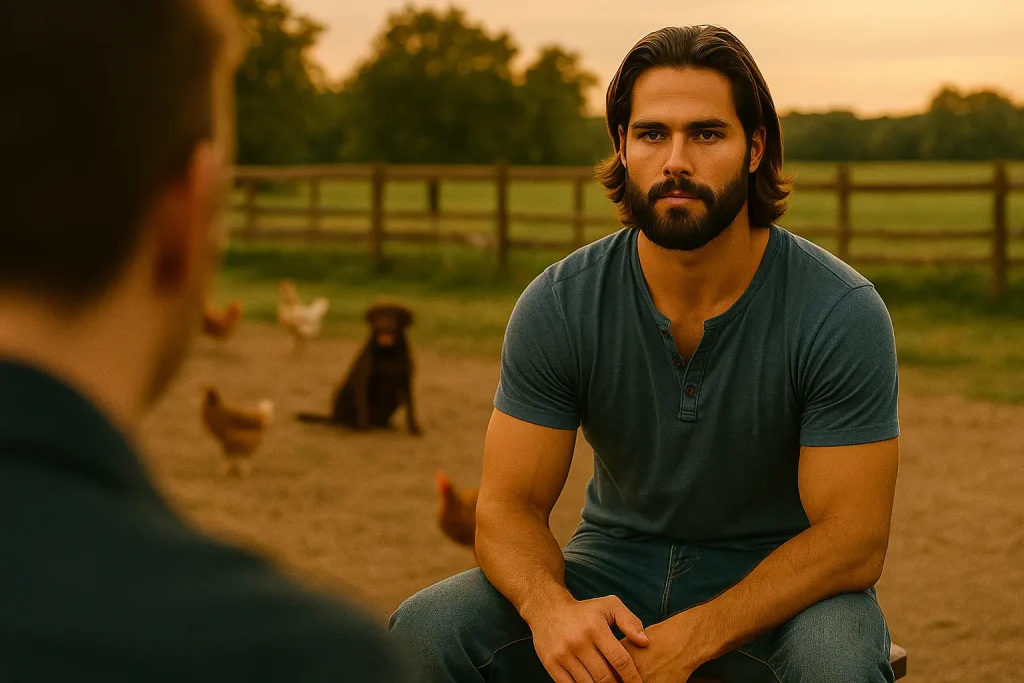
Takawaka Music sat down with Mark Thompson on his homestead to talk about the new album, With Flying Birds, and what’s new in his neck of the woods. Interviewer: So, Mark. Great to see you. Album sounds great. Mark: Thanks. Great to see you too. Interviewer: So, what have you been up to? Mark: Nothing much. Just doing chores and such. Interviewer: Yeah. Great place. Mark: Thanks Interviewer: How many acres? Mark: About 20, give or take. Interviewer: Great kids. Met them when we came in. Interviewer: Yeah. Rambunkshish. All over the place. Interviewer: I would think. Alice: No we’re not. Mark: Sometimes you are sweety. Alice: No! Max: Sometimes we are. (Alice gives her brother a look) Interviewer: Daisy. Daisy looks good. Mark: Yeah. She’s doing good. At a bake sale I think. Alice: She is. Mark: Thanks honey. Interviewer: So I was over talking with Paul the other day. Mark: Yeah, what did he have to say. Haven’t talked in a while. I think he was going to come up in the next few days. Max: Saturday daddy. Mark: Thanks Max. Interviewer: You seem figity Mark. Everything ok? Mark: Yeah, yeah, just don’t like interviews. Interviewer: Oh. I’ll try to make it quick. So the album. Like it. Mark: Yeah. It came out great. Everyone, the band and producers, love it. Interviewer: Yeah, really sharp. Especially the drums. Mark: Yeah, yeah. Great to be back in the room smashing. Leave it all out there. Interviewer: Yeah. What’s next for the group. Mark: Not sure. John was talking getting back in and making another album. I think he wants to bring in his new girlfriend. Interviewer: I hear she can sing, from Paul. Mark: Yeah, yeah. I heard that too. Haven’t heard her yet. But I believe in John’s intuition, so she should be good if that is what he is thinkin’. Interviewer: What about Daisy. Does she sing? Mark: Yeah, yeah. She has a great voice. Doesn’t like showin’ it off though. Interviewer: Really. You should give her some extra umph and see what she can do. Mark: Maybe. You’d have to ask her. I don’t push her into anythin’. Interviewer: Good. good. So, nothing upcoming Mark: No, not really. We are waiting to see how this album does. Maybe it will be a disaster. I don’t know. Interviewer: Disaster. What do you mean? Mark: Being AI, of course. Don’t know if people are ready for all that. There are a bunch of critics carin’ on about all that. Don’t know what the point is. Just music. Interviewer: But AI music. People want “real” right? Don’t they? Mark: I suppose. To each his own. Interviewer: Right. So you didn’t do much singing on the album this time. Why not? Mark: I’d rather stay in the back. Much more comfortable back there. Interviewer: Yeah. You should do some singing. Maybe next time. I’ve heard you. You’re good. Thanks. Maybe. Interviewer: Alberto does some. Singing. Mark: Yeah. Great guy. Good pipes. Interviewer: Is he sticking around. Mark: Yeah. As far as I know. Haven’t heard anything otherwise. You. Heard of something. Interviewer: Nope. Well Mark. I’m not going to keep you any longer. Great to see you. Good luck with the album. Mark: Thanks. Thanks for comin’ out. Pretty long drive. Interviewer: Yeah a little. Well then Good Luck. Mark: Thanks. you too.
Interview with Paul BearClaw from RustJaw
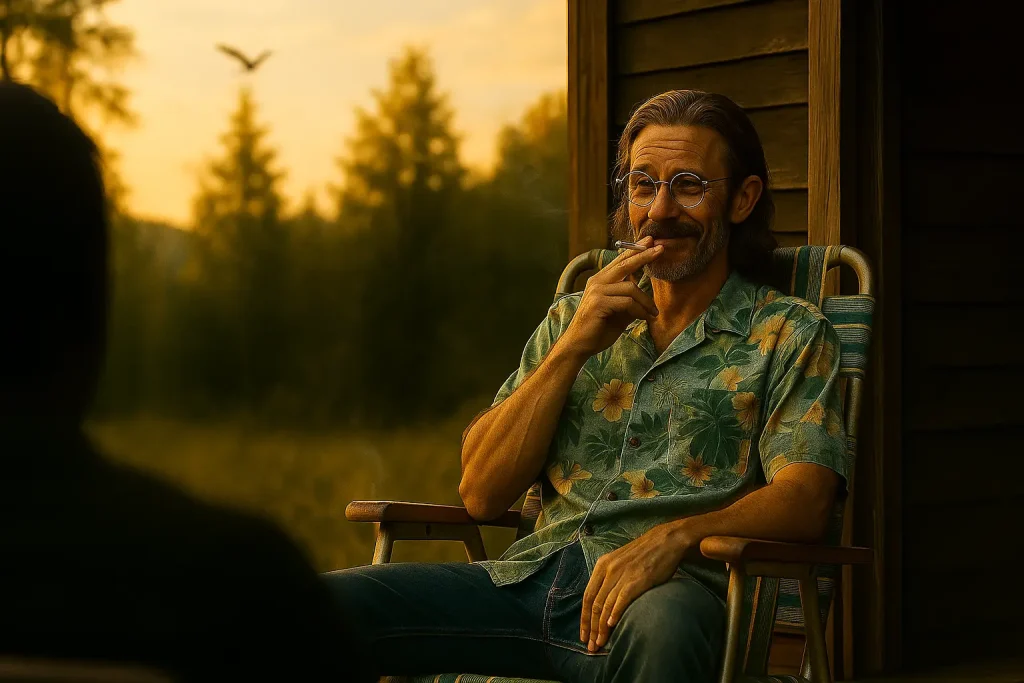
Takawaka Music sat down with Paul BearClaw of RustJaw to talk new album, With Flying Birds, and Opera of all things, and why there is no violin music in this new album. Interviewer: So Paul, great to finally get in touch Paul: That so. Interviewer: Yeah, it’s always great to talk to you. You’re very… eclectic. Paul: Really Interviewer: I think so Paul: Thanks Interviewer: I hear you were in Italy a while back. Paul: Yeah, just got back from there. Beautiful country. Great Wine. (leans in and whispers) Great Women. Can be a little “passionate,” though. Comes in handy in bed. Interviewer: I bet. Care to share what you were there for? In Italy. Paul: Opera. There was an opera festival there I went to. Interviewer: Opera festival? Which one? Paul: Arena di Verona Opera Festival. Great. Just Great. Been goin’ on since 1936 supposedly. Love being there. Interviewer: Yeah, what did you do? Paul: Listen, of course. Had the time of my life there. Met a sweet little lady there, too. Interviewer: Really. What’s her name? Paul: None of you dang business, that’s her name. Interviewer: Ok. So the album, With Flying Birds, has no violin? Paul: I know. Sad. John wanted more of a harder sound than puttin’ in a violin mix, and the producers didn’t think it was “appropriate” (he shows air quotes). But, I agree when the final product came out. Interviewer: Next time? Paul: Dang, right next time. Just kiddin’. I love that man. John of course. Not the producer. Soul bigger than the Grand Canyon, I’ll give you that. And the producers, well, we’ll just leave it at that. (laughs) Interviewer: Not in love with the producers? Paul: They’re all right I suppose. Never liked brass types anyway. Move on. Interviewer: Great guy, John? Paul: Dang rights. Interviewer: And Mark. How do you get along with him? Paul: Magnificant. Love the man. Great family. Great kids. Interviewer: I hear you have gone fishing with Max. Paul: Yup. Boy as bright as the sun. Yeah. Yeah. And Alice, too. Smart as a whip. That girl is goin’ places. Interviewer: She likes Sister Sarah. Paul: Yeah, we all did. Tragic. Interviewer: I mean the song. Paul: Oh yeah. Beautiful. We use it as the closer to the album. Interviewer: So, the sister, what went on there? Paul: Don’t want to talk about it. But tragic, nonetheless. Interviewer: So no comment Paul: No comment necessary. John thought something might happen to her with the protests and all. Nothin’ to be done about it, I guess. You want to go that route, I guess. Things happen. Interviewer: Are the authorities looking into it? Paul: Authorities! What authorities? Nothin’ going to happen with that. Nothin’ at all. Tragic. Interviewer: Ok. You sing on the Album Paul: Hell yeah. Gave it a whirl. Interviewer: You have a great voice Paul. You need to do more singing. Paul: Yeah. Suppose Interviewer: Tell me about When the Storm Came Down. Paul: Great tune. Lot of heart. Sad though. John writes a lot of sad music, unfortunately. Interviewer: Why unfortunately? Paul: A lot of sadness in that man. A lot of breakups. Disappointment. Needs a break. I’m thankful, though for some of the other upbeat songs. Love With Flying Birds. Love the laugh. We didn’t know if it should go in, but John thought it was necessary. It works. Works great if I do say so myself. Interviewer: I hear he has a new flame. Paul: Who? Interviewer: John Paul: Oh Yeah. Yeah, yeah, yeah. Hope that sticks. Seems nice enough. Interviewer: You met her? Paul: Yeah, during a press somethin’ or other. Good woman. This might be the one. Interviewer: Good. Good to hear that he met someone. Paul: Yup. Has a great voice too. If this holds, you might hear her someday. Interviewer: Really. Paul: Might. Who knows with John. Man’s deep, but not too bright with women. Interviewer: Ok. Good Ole Jasper Jack. Fun song. Paul: Yup. Met that man down on the Bayue there somewhere. (whispers) We don’t talk about where exactly. Crazy man. Eyes all over the place. (points everywhere) Good moonshine though. Crazy man. Great dog. Interviewer: And do they really both come when you call out Jack? Paul: (laughs) hell yeah. Craziest thing you ever saw. Don’t know why. The man isn’t dumb. Just comes. Interviewer: Maybe just having fun. Paul: No, no. That’s how he is. Interviewer: Really? Paul: Really. Interviewer: What’s next for the band? Paul: Don’t know. John hasn’t said anything. We’re hopin’ it’s a success. We love it. Don’t know what the people will do with it. All in their hands now. Can’t do a thing about it. Hope they like it. Interviewer: So nothin’ then. Paul: John doesn’t like doin’ live shows. Messes him up. Very quiet man until he starts singin’. Doesn’t like large crowds. Interviewer: That’s too bad. It would be great to hear the songs live. Paul: Yup, yup. But even Mark. On the farm and everythin’. Doesn’t really like leavin’ it. And the kids and all. You know, he has a special bond with his wife. Somethin’ you don’t see all that much any more. Great woman. Interviewer: Daisy. Any connection to the song Daisy Mae? Paul: Another thing we don’t talk about. Interviewer: John. Paul: Don’t want to talk about that. It’s all good. Nobody got hurt. All is well. Interviewer: Where is he now. John, I mean? Paul: Who knows. Ridin’ that cycle of his. With his new girl and that dog. What’s his name…(snaps fingers), Hunter, Hunter, that’s right. When you start getting older, you lose a lot up there. Interviewer: You’re not old Paul: 42. Getting up there. Interviewer: Nah, you’re not old. You have a lot of time left. Paul: Never know. Things happen. Sister Sarah! Just sayin’. Things happen. I stay away from all that. Keep to myself. Here in the backwoods, by myself. Sittin’ here playing the violin
How do we write a song
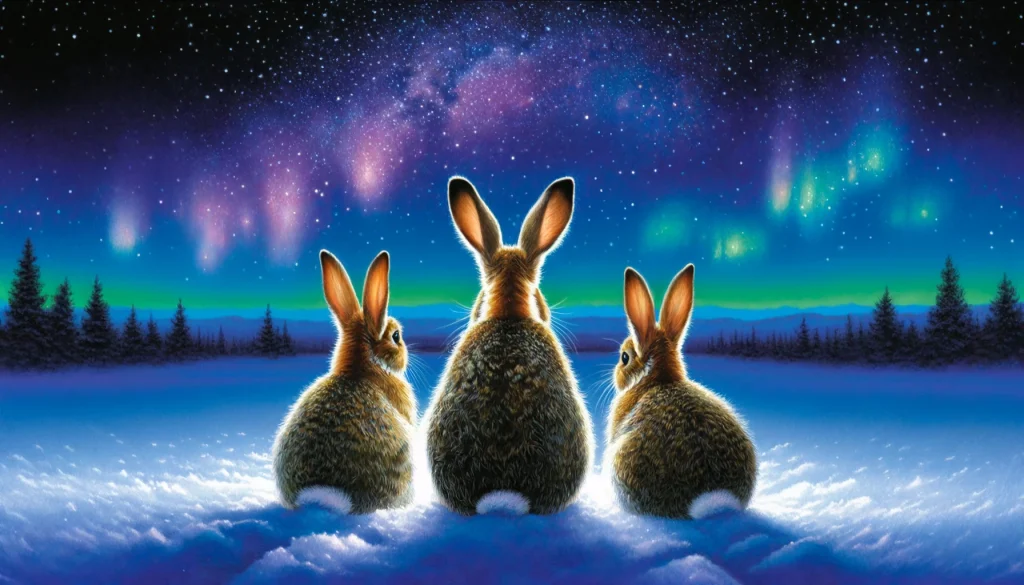
Songs come to us in many ways, but the most significant moments are often the quietest ones—early in the morning, late at night just before sleep, or through a process called automatic writing. We’ve often woken in those still hours with lyrics in our heads—usually choruses, strong and unforgettable. When that happens, we write them down right away, before they disappear. We also listen to people on the street, in restaurants, and even in other places for inspiration. “I’m Sorry” started in an ER at a hospital listening to a girl talking to her friend about why she was there. You get some great lines and stories by just listening. Documentaries are also good places to find lyrics, or at least ideas. What is Automatic Writing? Automatic writing—also known as psychography—is a process where you write without consciously choosing the words. Some describe it as words coming from the subconscious, a spiritual source, or even beyond. It’s often associated with: Writers often enter a relaxed, trance-like state and allow their hand (or keyboard) to move freely—often not knowing what they’ve written until they read it back. How to Start Automatic Writing Here’s a simple 10–15 minute exercise to begin your own automatic writing practice: 1. Prepare your space: 2. Set an intention (optional):Silently say something like:“I am open to whatever needs to come through. I trust the flow.” 3. Begin writing:Start moving your hand or typing—without thinking. Let anything come out, even if it’s nonsense, repetitive, or raw. Stuck? Try starting with: 4. Keep going for 5–10 minutes:If your mind goes blank, just write: “I don’t know what to say” until something shifts. 5. Reflect (optional):When you’re done, read it back slowly. How to Make Sense of Automatic Writing There is always sense in the madness—if you’re open to finding it. Often, a theme or emotional thread will emerge. Once you spot it, you can build from there—cutting what doesn’t belong, expanding what does. It’s like sculpting from a block of stone. You reveal what was already there. “Jaime” was one of those songs.All we knew was that we liked the name Jaime (or Jamie). We let phrases arrive naturally and jotted them down. That’s it. From there, a story began to form—quietly, intuitively, but clearly. Don’t Fear the Words This is key: don’t censor yourself. Don’t be afraid of what shows up. Sometimes the words reflect fears, longings, or emotional reactions from daily life. Let them. Words are just words until you give them shape—and sometimes, they lead you somewhere true. From Chaos to Craft Once you’ve collected your raw material, it’s time to shape it. This involves: You likely learned the basics of poetry in school—rhyme schemes, stanzas, meter. Use what works. Break what doesn’t. There are no rules, only rhythm and feeling. We gravitate toward Free Form or Narrative Poetry—because we like to tell stories. We believe songs today are often too simple. We’d rather say something real than nothing at all. You can still make a catchy tune that means something—even if it’s just about being happy about rabbits. Finding the Beat Without the beat, there is no song. Every phrase has a natural rhythm. Your job is to find it. Try this: Count syllables if needed. For example: “Jaime, you’re the one I adore” – 8 or 9 syllables (depending on whether you count the pause/comma as a beat). Here’s a sample verse from “Jaime” with beat count: Jaime, you’re the one I adore (8–9)I respect your hunger, but your love even more (11–12)You burned like a star I couldn’t ignore (11)Then faded like breath from a closing door (10) The rhythm isn’t perfectly even—and that’s okay. You can add silent beats, rests, or extend a word’s delivery to balance it out. Let the singer’s voice shape the phrasing. Every beat doesn’t need to be filled with a word. We use our hands like a conductor’s baton—chopping the beat to feel the rhythm. Try it. It helps. Why We Don’t Stick to One Genre Because we don’t start with a genre in mind—we start with a feeling, a phrase, or a title. We let the song reveal itself. Sometimes it leans folk, sometimes electronic, sometimes pop, rock, or indie. We love all kinds of music, so we don’t box ourselves in. The only song we knew the genre of from the start was “Rabbit” (a.k.a. “My Little Rabbit Friend”). We knew it would be sweet and simple—something kids and adults could sing together. But that was rare. Most of the time, we’re just following where the song wants to go. Final Thoughts Whether your lyrics come in a dream, in the middle of the night, or through automatic writing—trust the process. Let the words come. Don’t chase perfection. Let the song live and breathe and become what it wants to be. Songwriting is about truth, emotion, and connection.It’s about being present enough to listen, even when you don’t know what you’re hearing yet. Keep writing. Keep catching phrases. Keep counting the beats. Because often, the best songs aren’t written.They’re remembered. So get to it. Write your first song. We’ll be listening.
